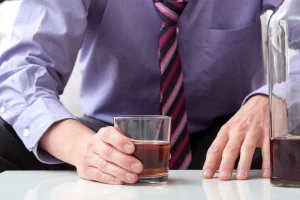Our team provides support for the family via education, guidance, and help finding tools to support your loved ones through their recovery. Transitional housing is temporary housing for the working homeless population and is set up to transition their residents to permanent housing. Our customized program provides daily accountability and structure which serve as gentle guide rails to keep you centered.
List of Halfway Houses in New York
They offer no formal treatment but either mandate or strongly encourage attendance at 12-step groups. In addition to reducing the risk of relapse, recovery residences have other benefits. One study of 330 residents at 49 sober living homes in California found that residents had increased odds of total abstinence and employment.
Search for Transitional Housing
Halfway houses date back to the 1830s when they housed children and adults that had committed crimes or had been released from prison. These facilities still exist today and are used primarily for those who have been incarcerated or are unhoused. Halfway houses are often designed specifically for those that received treatment for addiction to drugs or alcohol while in prison. Halfway houses can be government funded or run by private organizations that receive government grants. Residents may sleep in dorms, and attendance can be court-ordered for a set period.

Opiate Addiction Treatment Program
- The information gathered on the website nycityapartment.com is intended for the use of URBANLIVING INTL..
- Whether new to sobriety or familiar with the trials and tribulations of relapse, we welcome all individuals who have a desire to create a new life for themselves.
- During this, clients participate in a combination of evidence-based therapies, including individual, group, and family therapy.
- Your sober living community will provide you with invaluable peer support and motivation to continue on your journey to a life free from addiction.
- Tucked away on quiet side streets in Manhattan’s TriBeCa neighborhood, Avenues NYC’s TriBeCa sober living spaces offer a serene escape from the temptations of city life – without sacrificing the comforts of home.
Living and maintaining a home, finding a job, paying bills on time and facing everyday stressors can pose significant challenges for those in recovery. Most sober living homes do not offer formal addiction treatment but utilize programs in the broader community. Some sober houses provide forms of peer-led counseling or promotion of 12-step programs as favored by organizations such as Alcoholics Anonymous.

People who are suffering from some type of substance abuse issue often have a hard time readjusting to society, especially if they have received inpatient treatment or gone to rehab. Sober houses are available to help these people take the final step in their sober house near me recovery process and helping them learn how to live their lives again without the substance abuse. New York provides comfortable, furnished, and safe homes for sober living residents to reside while they are recovering from both alcohol and drug abuse.
Improvement in Global Health
- As individuals pay rent and expenses, there is generally no time limit on how long they can stay.
- Depending on the facility, residents may be expected to do house hold chores.
- Halfway houses, on the other hand, typically have a time limit and require residents to either be attending a treatment program or have recently completed one.
These skills will enable someone to function well in society when they leave the facility. Substance use treatment providers may offer oversight in some instances, although this is not always the case. Located a few blocks away from the Bedford Avenue stop on the L train, residents live in the heart of Brooklyn’s ultra-hip Williamsburg neighborhood. With over 7,000 square feet of open floor plan and separate male and female housing, our lofts foster an open community that no other NY residence can offer. The chic converted warehouse space is just steps away from exquisite views of the East River, amazing boutiques, cafes, and is only a ten-minute subway ride from Union Square, the Village, and Downtown Manhattan. Other benefits include being around others who are at the same point in the recovery process, as well as one or two staff members who reside with the residents and are professionally trained.
What Does Sober Housing Provide?

- This continuation of support, motivation, and, in some cases, therapy will significantly enhance their chance of long-term sobriety.
- This means that detoxification, therapy and other professional forms of treatment have already been administered and these people are on their final steps of the recovery process.
- In early recovery, we believe in the need for ongoing clinical support services.
- This effect can cause ongoing problems and make someone reluctant to return home after addiction treatment.
